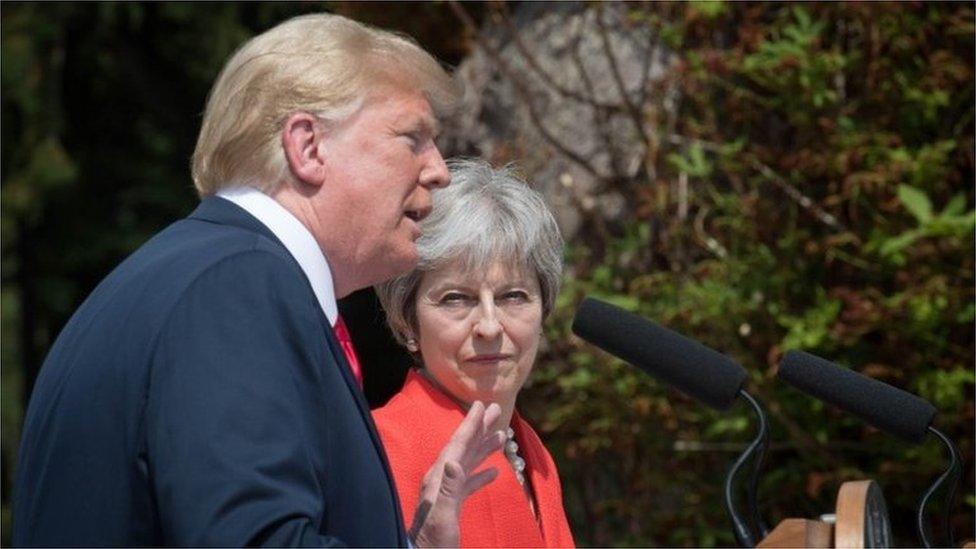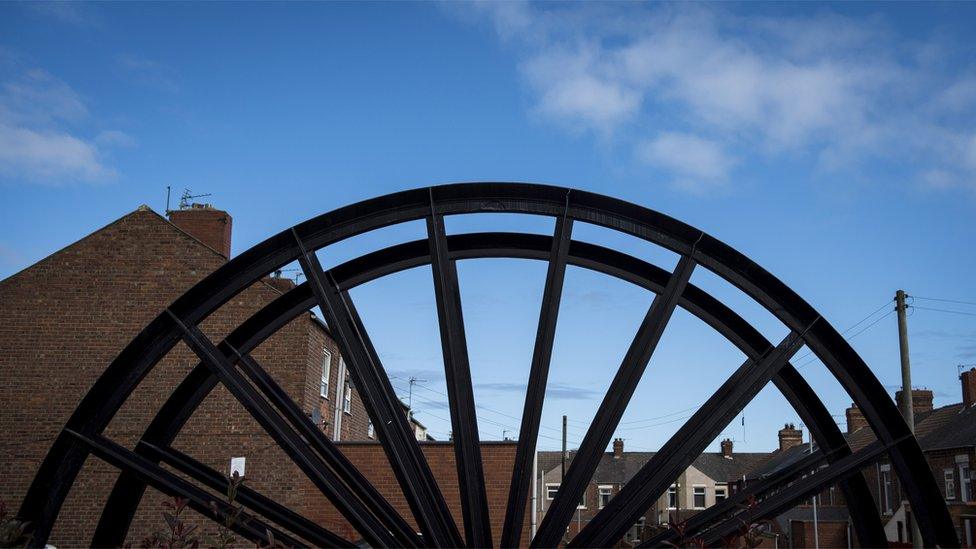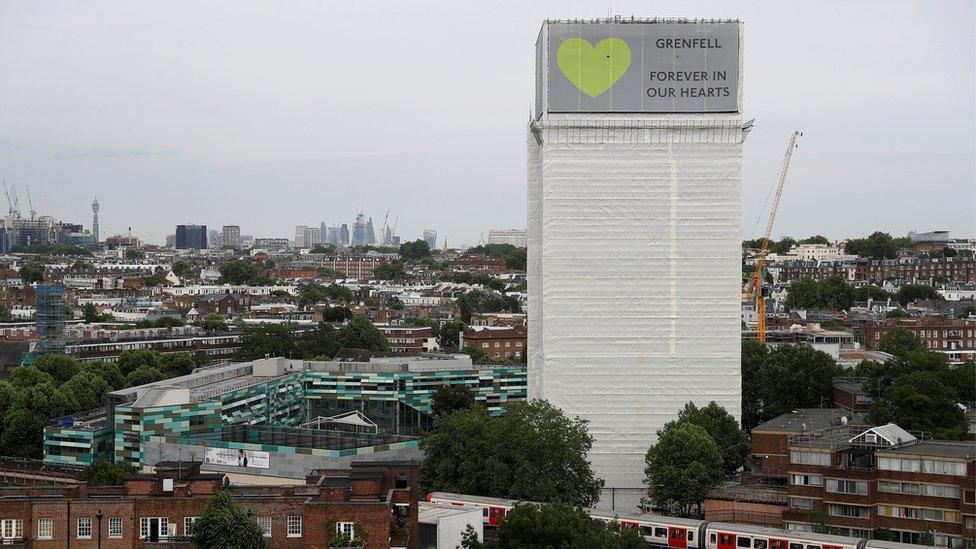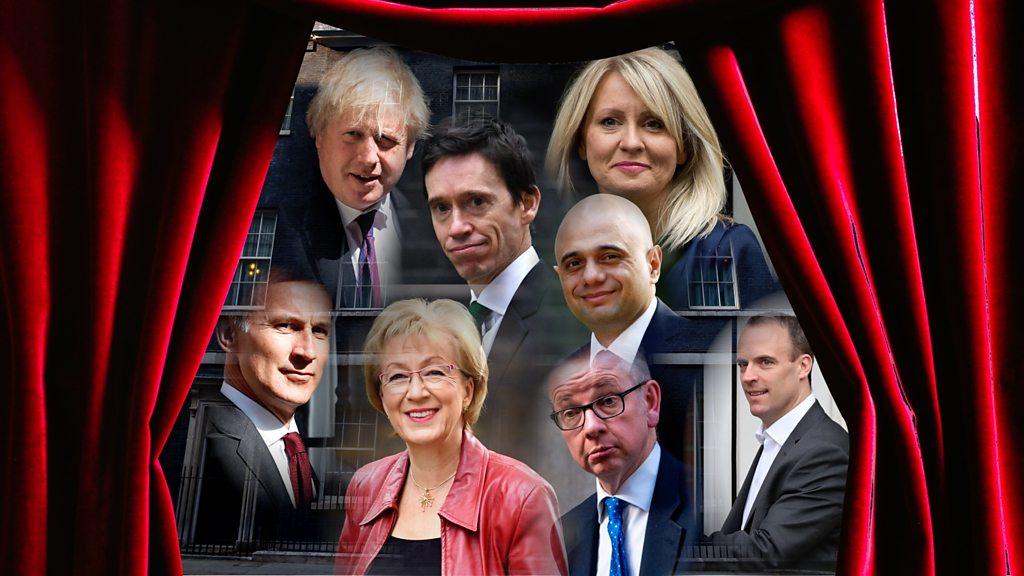Week ahead in Parliament
- Published

Never mind the agenda, feel the politics.
Parliament is back after its Whitsun recess - but events away from the Commons and Lords chambers will overshadow the rather thin business within them.
Those events include the state visit of President Donald Trump and the commemoration of D-Day, not to mention the Conservative and Lib Dem leadership elections and an internal crisis for Labour.
On the face of it, the business in the Commons provides few opportunities for the leadership rivals to shine.
Apart from International Development Questions on Thursday, which will bring Rory Stewart to the dispatch box, none of the week's departmental question times will feature a Conservative leadership candidate.
Equally, there is not any big-ticket legislation which might allow aspiring leaders a chance to shine before their electorate of MPs - but watch out for any last-minute additions to the programme.
Might one or more contenders find an excuse to make a statement to the House on some crowd-pleasing subject? Might a canny opposition (or an opponent from their own party) try to get in a professional foul, by calling one of the rivals in for an awkward urgent question?
MPs are the voters in the initial stages of the Conservative leadership election, so it's a good moment for the candidates to shine in Parliament, and a bad moment for them to stumble.
In the chamber, this week's agenda is dominated by backbench business debates, and the most important parliamentary action looks to be on the committee corridor, where there will be some important hearings on the state of local council finance, and on business rates.
Both are technical subjects, but they have enormous impact on individual areas - with fears about the ability of councils to sustain critical services, particularly adult social care, and fears for the future of traditional shopping, without a major reform of business rates and retail taxation.
And keep an eye on the sub-committee on "fake news" of the Digital, Culture, Media and Sport Committee - it will be hearing from Aaron Greenspan, a Harvard classmate of the Facebook founder Mark Zuckerberg, who has claimed the problem of fake accounts on the social network is far greater than has been admitted.
Here's my rundown of the week ahead:
Tuesday 4 June
The Commons reconvenes (14.30 BST) for Justice Questions. The day's 10-minute rule bill, external, from Conservative MP Rachel Maclean, would require doctors to inform the driving licence authorities when a patient is diagnosed with dementia, so they would have to take a "supplementary driving assessment".
Then MPs polish off their consideration of the Wild Animals in Circuses (No. 2) Bill - with three hours allocated for a Committee of the Whole House, and a third reading. It would be a surprise if they needed much of that time - as I write, there are only five amendments down for consideration.

So it may not be long before MPs get to a debate suggested by the Backbench Business Committee on the Mineworkers' Pension Scheme - the Labour MP Grahame Morris will call for changes to the surplus sharing arrangements of the scheme, to ensure former mineworkers and their dependants in coalfield communities have an improved quality of life in their retirement.
In Westminster Hall (11.30 BST), Labour MP Chris Elmore leads a debate on telephone and online scams - he has previously highlighted the problem of telephone calls and text messages from people pretending to be well known companies which seek to trick people into handing over personal information such as bank details and home addresses. In one case, he had a constituent who received a fraudulent email bearing his own name.
There will also be debates on trade union access to workplaces (16.30 BST), the cost of policing football (18.00 BST) and education funding (18.30 BST).
On the committee corridor, the Treasury Committee has a hearing on the impact of business rates on business (13.45 BST), with a high-powered panel of witnesses including West Midlands Mayor Andy Street.
Meanwhile, the Housing, Communities and Local Government Committee has a hearing (15.45 BST) on local government finance and this year's spending review, looking at whether a major change in the funding system is required, after 10 years of spending reductions, to keep local services going.
The witnesses include senior councillors and local government umbrella groups, as well as Alison Cox, director of cancer prevention at Cancer Research UK, and Jeanelle de Gruchy, president of the Association of Directors of Public Health.
In the Lords (14.30 BST), after their usual half hour of questions to ministers, peers are due to debate a couple of orders and regulations: the Draft Justice and Security (Northern Ireland) Act 2007 (Extension of duration of non-jury trial provisions) Order, and the Draft Food and Feed Hygiene and Safety (Miscellaneous Amendments) (EU Exit) Regulations.
That is followed by a debate to mark the 75th Anniversary of D-Day.
Wednesday 5 June
The Commons day opens (11.30 BST) with half an hour of questions to Cabinet Office Minister David Lidington - followed by the first Prime Minister's Question Time since Theresa May announced her intention to quit.
The 10-minute rule bill is from Labour's Preet Kaur Gill: it would require landlords to provide accounts of management charges payable by freehold property owners.
Then MPs knock off two statutory instruments: the Draft Rehabilitation of Offenders Act 1974 (Exceptions) Order 1975 (Amendment) (England and Wales) Order, and the Draft Animal Welfare (Licensing of Activities Involving Animals) (England) (Amendment) Regulations.
The main debate is a backbencher-led debate on "invisible disabilities and accessibility change". It will focus on disabilities such as epilepsy, ADHD and learning disabilities, which are all issues where families need access to disabled toilets and car parking facilities.
In Westminster Hall, the subjects for debate include an industrial strategy in north-eastern England (09.30 BST), universal credit and debt (14.30 BST), authorised absence from school (16.00 BST) and crime and antisocial behaviour in smaller towns and communities (16.30 BST).
On the committee corridor, the Environmental Audit Committee concludes its inquiry into toxic chemicals (14.00 BST) by quizzing Environment Minister Thérèse Coffey and Business Minister Kelly Tolhurst, along with officials from the Health and Safety Executive and Public Health England.
At 14.30 BST, the DCMS sub-committee on disinformation hears from Facebook critic Aaron Greenspan (see above).
In the Lords (15.00 BST), peers will look at the detail of the Kew Gardens (Leases) (No. 3) Bill - an almost completely uncontroversial government bill to extend the maximum allowable lease on Kew Gardens' land from the current 31 to 150 years.
Then come two short debates, on tidal power and a report from a cross-party parliamentary group on engaging young people in heritage railways.
Thursday 6 June
MPs begin their day at 09.30 BST with half an hour of International Trade Questions, followed by International Development Questions and then Business Questions, which will provide a debut for the new Commons leader Mel Stride.
With the government in a holding pattern, it is hard to see him having much substantial legislation to announce.
Once again, the main debates are on Backbench Business Committee motions.
First, Kensington MP Emma Dent Coad leads a general debate on the response to the Grenfell Tower fire.

A public inquiry into the Grenfell fire began in September 2017
Following this, there's a debate on the position of an estimated 200,000 people, often customers of the collapsed lender Northern Rock, who are trapped in mortgages with interest rates as high as 7% or more, unable to access the better rates that are now available.
Conservative MP Charlie Elphicke and Labour's Martin Whitfield, who will lead the debate, want a change in the rules to allow customers the right to move to other banks and other providers.
In Westminster Hall (13.30 BST), Treasury Committee Chair Nicky Morgan introduces a report on consumers' access to financial services, which looked at whether vulnerable consumers paid more, and called for action to boost financial inclusion so more people have access to cheaper credit.
At 15.00 BST, Labour's Matt Western leads a debate on local bus drivers' working hours - he has already proposed a 10-minute rule bill on the issue and he argues that the current law is not keeping the public safe. He wants local bus drivers to be subject to the same working-hour regulations as long-distance bus drivers or lorry drivers.
Unusually for a Thursday, there is a select committee meeting - the Science and Technology Committee will take evidence from the Chief Medical Officer, Prof Dame Sally Davies (09.30 BST).
In the Lords (11.00 BST), there are debates on the government's plans to support victims of domestic violence and abuse, the treatment of people with learning disabilities and complex needs in in-patient units, and the latest employment figures.
- Published28 May 2019

